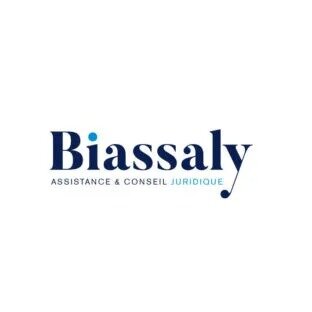Best Agriculture Lawyers in Gabon
Share your needs with us, get contacted by law firms.
Free. Takes 2 min.
Or refine your search by selecting a city:
List of the best lawyers in Gabon
About Agriculture Law in Gabon:
Agriculture is a vital sector in Gabon, contributing significantly to the country's economy. The agriculture sector is governed by various laws and regulations to ensure sustainable practices, protect farmers' rights, and promote food security.
Why You May Need a Lawyer:
You may require legal assistance in agriculture for various reasons, including land disputes, contract negotiations, regulatory compliance, environmental issues, intellectual property rights, and more. A lawyer can help navigate complex legal matters and protect your interests.
Local Laws Overview:
In Gabon, agriculture laws cover a wide range of topics, including land tenure, crop production, livestock farming, agricultural trade, environmental protection, and agricultural subsidies. It is essential to be aware of these laws to operate legally and responsibly in the agriculture sector.
Frequently Asked Questions:
1. Can foreign individuals or companies own agricultural land in Gabon?
Foreign individuals or companies can own agricultural land in Gabon, but they must comply with specific regulations and restrictions set by the government.
2. What are the main government agencies responsible for regulating agriculture in Gabon?
The Ministry of Agriculture, Livestock, and Food is the primary government agency responsible for regulating agriculture in Gabon.
3. How can I obtain a license for agricultural activities in Gabon?
To obtain a license for agricultural activities in Gabon, you need to submit an application to the Ministry of Agriculture, Livestock, and Food and meet certain criteria set by the government.
4. Are there any subsidies available for agricultural producers in Gabon?
Yes, the government of Gabon provides subsidies and incentives to support agricultural producers and promote sustainable farming practices.
5. What are the environmental regulations that agricultural businesses must comply with in Gabon?
Agricultural businesses in Gabon must comply with environmental regulations related to land use, water management, waste disposal, and biodiversity conservation.
6. Can I patent new agricultural inventions or technologies in Gabon?
Yes, you can patent new agricultural inventions or technologies in Gabon by following the procedures outlined in the country's intellectual property laws.
7. How can I resolve a land dispute related to agriculture in Gabon?
If you have a land dispute related to agriculture in Gabon, you can seek legal assistance to resolve the issue through negotiation, mediation, or legal proceedings.
8. What are the requirements for importing agricultural products into Gabon?
To import agricultural products into Gabon, you need to comply with the country's import regulations, obtain the necessary permits, and meet quality standards set by the government.
9. Are there any restrictions on exporting agricultural products from Gabon?
Yes, there are restrictions on exporting certain agricultural products from Gabon, such as protected species, endangered plants, or products that do not meet quality standards.
10. How can I stay updated on changes in agriculture laws and regulations in Gabon?
You can stay updated on changes in agriculture laws and regulations in Gabon by monitoring official government websites, seeking legal advice, and joining industry associations or organizations.
Additional Resources:
For more information on agriculture laws and regulations in Gabon, you can contact the Ministry of Agriculture, Livestock, and Food, the National Agricultural Research Institute, or the Gabonese Association of Farmers and Agribusinesses.
Next Steps:
If you require legal assistance in agriculture in Gabon, it is advisable to consult with a qualified lawyer who specializes in agricultural law. They can provide legal advice, represent you in legal proceedings, and help protect your rights and interests in the agriculture sector.
Lawzana helps you find the best lawyers and law firms in Gabon through a curated and pre-screened list of qualified legal professionals. Our platform offers rankings and detailed profiles of attorneys and law firms, allowing you to compare based on practice areas, including Agriculture, experience, and client feedback.
Each profile includes a description of the firm's areas of practice, client reviews, team members and partners, year of establishment, spoken languages, office locations, contact information, social media presence, and any published articles or resources. Most firms on our platform speak English and are experienced in both local and international legal matters.
Get a quote from top-rated law firms in Gabon — quickly, securely, and without unnecessary hassle.
Disclaimer:
The information provided on this page is for general informational purposes only and does not constitute legal advice. While we strive to ensure the accuracy and relevance of the content, legal information may change over time, and interpretations of the law can vary. You should always consult with a qualified legal professional for advice specific to your situation.
We disclaim all liability for actions taken or not taken based on the content of this page. If you believe any information is incorrect or outdated, please contact us, and we will review and update it where appropriate.
Browse agriculture law firms by city in Gabon
Refine your search by selecting a city.










